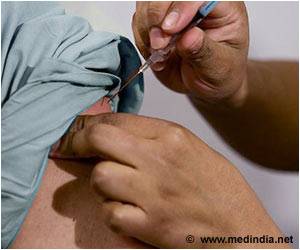Flu vaccine that can be administered as a pill has been developed by British scientists. This is the world’s first non-biologic influenza vaccine and could herald a revolution in vaccine delivery.

Scientists at the University of Cardiff produced the pill by creating synthetic “mirror image” versions of protein molecules.
Lead scientist Professor Andrew Sewell said: “There are many benefits of oral vaccines. Not only would they be great news for people who have a fear of needles, but they can also be much easier to store and transport, making them far more suitable for use in remote locations where current vaccine delivery systems can be problematic.”
Scientists claim that this new pill could herald a “revolution in vaccine delivery.”
The research was published in the Journal of Clinical Investigation, and has been confined to a proof-of-concept laboratory study.
However, it might take many more years before a non-biological pill vaccine is tested on patients, revealed scientists.
Advertisement
Source-Medindia














